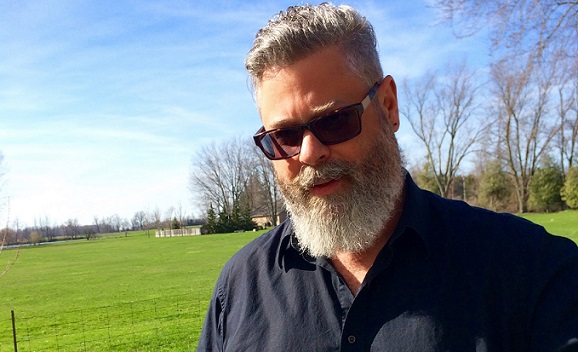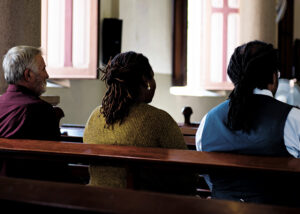In 2013, I embarked on an ancestral pilgrimage to Scotland. The first site I visited was Lochmaben Castle, where, according to my Aunt Faye’s genealogical research, one of our ancestors was born.
Lochmaben Castle was a major defensive stronghold for both the Scottish and the English through the 13th to 17th centuries. Possession of the fortress swapped back and forth between the two, as it was captured and recaptured. Today, it lies in ruins, located in a remote area of Dumfries.
After exploring the grounds of this historic site, I sat in silence, enjoying the warmth of the sun and soaking in the solitude of this paradoxical place that was both peaceful and stained by centuries of armed conflict.
My inner being, with its contradictory predispositions, started to make sense in this place. My proclivity towards melancholy, for example, had found a home. I sensed that my melancholy was something that began long ago in this place, and many other places like it, where my ancestors had lived, laughed, loved and lost. Here, in the shadow of these crumbling walls, my melancholy was no longer mine. It was our melancholy. Something we shared as kin.
This awareness spread to my deep-rooted shame. My shame no longer felt like mine, but rather an extension of the shame of our clan. It was our shame, not mine. No longer my burden to bear alone, but a weight we shouldered together.
I soon realized that all my gifts, strengths, abilities, limitations, defects, insecurity—all of it—had a long history of being shaped, influenced and developed for centuries through my family tree, and were now manifesting in my life for another round of being shaped, influenced and developed for the next generation.
I felt significantly lighter as this insight took root. I felt free of something. What exactly, I still can’t say. The best way I can describe the experience was healing liberation resulting from a peculiar connection with human beings I had never met—my ancestors. I’d never felt this before and it was a surprisingly powerful experience.
Most Mennonites I know have a deep connection with, and respect for, their ancestors. I recall a conversation with one of my Mennonite mentors years ago about how I respected the traits and attributes of so many Mennonites I’d met. He responded, “Troy, this Mennonite way of being is the result of 400 years of genetic modification. The Mennonites you’ve met and admire haven’t developed these traits and attributes on their own. Many of us were literally born this way.”
We are all the result of genetic modification. This can be frustrating. It can also be liberating. For instance, it’s quite a relief to share the burden of responsibility for who you are and why you are the way you are. This shared responsibility empowers us to shoulder our share of the load. For example, when I feel anger, instead of letting it take over, I try to be aware that this is not my anger but my participation in the collective anger of our tribe. This creates an opportunity for me to transmute our collective anger into life-giving energy, “breaking the cycle” for the next generation.
Christianity widens the circle of shared life to include strangers. In Christ, my suffering is not my suffering, but my participation in the suffering of Christ and the whole body of Christ. Sharing in our collective suffering and joy is different from weeping with those who weep and rejoicing with those who rejoice. It’s deeper than empathy or sympathy. It’s not trying to feel what someone else is feeling; it’s being aware that what I feel, think and sense do not belong to me, but are my experiences of a collective experience we all share. Your sadness, for example, is not your sadness; it’s your experience of our sadness. This awareness diminishes our identification with the individual self and increases our sensitivity to our oneness with each other.
As we grow spiritually, the tribe we share life with continues to grow. Ultimately, we discover our tribe is humanity. We eventually experience our interconnectedness with all people and creation.
My suggestion is to start by feeling and sensing this deep connection of shared life with your ancestors and kin. Then expand this connection to include more and more people, eventually including your enemies and those you detest. It’s been working for me, slowly but surely.
Why is this important? Sharing life, sharing in the suffering and joy of all, is what participating in the body of Christ is about. It’s also the only way we’ll resolve the escalating conflicts and problems of our present age.
Troy Watson is pastor of Avon Mennonite Church, Stratford, Ont.








Leave a Reply
You must be logged in to post a comment.